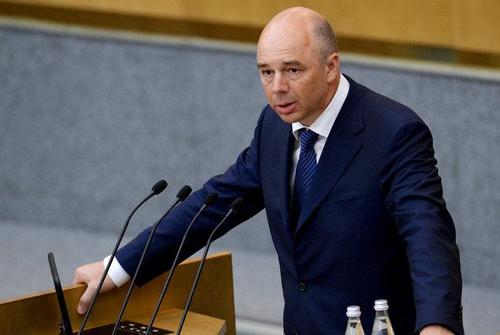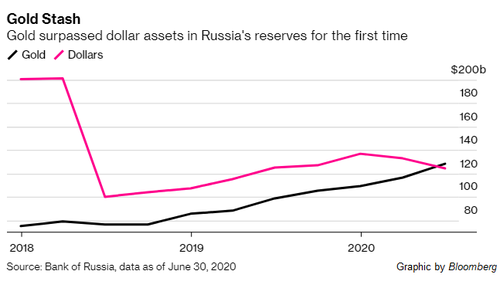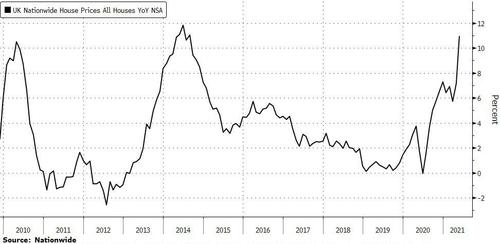Last summer, protesters from Baltimore to Bristol defaced statues and dumped them into rivers in an iconoclastic spasm, providing a momentary diversion from what the new progressives take to be the real agents of oppression: words. Words matter, they say, plausibly enough. Words have power and consequences, and there must be accountability, they add. These generalities are supposed to settle such matters as whether President Donald Trump calling the coronavirus the “kung flu” caused anti-Asian sentiment, which caused the Atlanta spa shootings, with no factual evidence required. That words have power is a commonplace, but then again so are observations that talk is cheap and that you’d better put your money where your mouth is.
The view that words drive events is the spiritual orientation of youthful leftism. But it’s hard to think of a view that would more directly contradict Marxist ideas about history, according to which words are frippery or ideology, concealing the material conditions of production. That sort of realism, which presupposes that we inhabit a physical universe, seems passé. Contemporary social justice movements focus on semiotic injustice, on the alleged violence perpetrated in and by words and images. We appear in this conception to live in a world that we are making with symbols, in a history driven by the production of signs and sentences rather than widgets.
The current censorial atmosphere raises philosophical questions. You start by asking about the effects of somebody’s rhetoric and end up trying to figure out whether language reflects reality or reality reflects language. In order to know what sort of power words could possibly have, we’ll need to reflect on what they are and how they mean. Fortunately, philosophers such as Charles Sanders Peirce, Gottlob Frege, and Ludwig Wittgenstein spent much of the late 19th and early 20th centuries trying to deal with general questions about linguistic meaning in a systematic way. Some of the central insights they developed have come to be foundational in philosophy and may even constitute something of a toolkit: Wittgenstein vs. the woke.
Meaning and Intention
First, we need to distinguish what words mean both from what the speaker intends and from what the hearer or reader understands. After an imbroglio at The New York Times, the practical necessity of doing some philosophical reflecting became obvious. The Daily Beast in January revealed that longtime Times science reporter Donald McNeil, who was conducting teenagers on a trip to Peru sponsored by the paper, had uttered the word nigger in a discussion about whether the use of that term on social media should lead to a child’s suspension from school. Editor in Chief Dean Baquet and Publisher A.G. Sulzberger then successfully pressured McNeil into resigning.
Times columnist Bret Stephens wrote a column, which the paper spiked (and Stephens subsequently placed with the New York Post), attacking his employer for McNeil’s removal. Stephens staked the whole question on McNeil’s intentions.
“Intention,” he wrote, “is the difference between murder and manslaughter. It is an aggravating or extenuating factor in judicial settings….A hallmark of injustice is indifference to intention.” In this case, of course, the focus isn’t on whether someone committed murder or manslaughter, but on what words mean and what people mean by them, which is quite a different matter. Stephens’ defense of McNeil rests on the connection of meaning and intention. McNeil, Stephens argues, didn’t intend to use the slur-of-all-slurs to attack anyone; he intended to talk about the word and its history.
But merely appealing to McNeil’s intentions will not clear his name. We often say something that reveals what we mean or even who we are without intending to. The words I utter or write can fail to mean what I intend; they can even mean the opposite. So, for example, if you ask me for directions somewhere and I tell you to take a left when I meant to say right, still I told you to go left; the sentence I uttered meant that you should turn left, whatever my intentions. What I said was wrong; it didn’t mean what I intended it to mean. The meaning of left, like the meaning of a slur, is a public matter, and it would be a lame defense to say that when I spewed a bunch of hate, I had love in my heart. If words actually meant whatever anyone intended them to mean, as opposed to what we mean by them together, we couldn’t communicate at all. Meaning, as Wittgenstein argued, is not “in the head”; it’s in the public language.
On the other hand, and for the same reason, the meaning of a word or sentence is also definitely not whatever the hearer or reader takes it to be. Otherwise, misunderstandings would be impossible. So if I say “take a right,” and you mistakenly take me to have said “left,” what I said was correct; you just misheard me. That words can be misinterpreted is also a precondition for any linguistic communication; if words mean anything, then people can get their meanings wrong. You can be responsible to some extent for some of the unintended consequences of your actions, but you can’t be held responsible for misapprehensions of your words.
It is possible to hear something as a slur, for example, and maybe even be traumatized by the experience, due only to a misapprehension. A classic example of this is provided by the experience of Greg Patton, a business professor suspended by the University of Southern California for using a Chinese word meaning “that”—nèige—in a Zoom class. At any rate, neither what the person thinks her words mean nor what her hearers think they mean determines what they do mean. This is useful, because otherwise the discussion starts slipping into a netherworld of mental states hiding in people’s heads, whether these states are intentions or traumas. That you were traumatized by hearing nèige because it sounds something like nigger cannot itself be used as a basis for determining what Patton said, what his words meant, or whether he ought to be sanctioned.
Use vs. Mention
We need to distinguish using words from talking about them, quoting them, paraphrasing them, and defining them. The philosophy of language rests on what is termed the use/mention distinction: the difference, for example, between hurling an insult at someone and quoting or talking about the insult that was hurled. Queen Latifah starts her song “U.N.I.T.Y.” by asking “Who you callin’ a bitch?” She obviously does so not to call anyone a bitch but rather to criticize the word’s routine use in the hip-hop of that era. Amazingly, the word was cut out when the video first aired on MTV; banning the mention of the word made it impossible for Latifah to make her point.
Gottlob Frege’s “On Sense and Reference” is often considered the foundational text in modern philosophy of language, and it pretty much begins, as it must, with the distinction between directly using words and talking about them: “If words are used in the ordinary way, what one intends to speak of is [the things they refer to]. It can also happen, however, that one wishes to talk about the words themselves or their sense. This happens, for instance, when the words of another are quoted. One’s own words then first designate words of the other speaker….We then have signs of signs. In writing, the words are in his case enclosed in quotation marks. Accordingly, a word standing between quotation marks must not be taken as having its ordinary reference.”
Without this distinction we cannot talk about the meaning of words at all; there could be no dictionary, for example. We employ this distinction all the time. A politician might quote or paraphrase her opponent and then attack what he said. Jake Tapper might describe the ridiculous doctrines of QAnon with a scowl on his face. But without the use/mention distinction, people who are quoting their opponents must also be endorsing their views.
The McNeil situation seems to turn on this distinction, and an even clearer case is provided by Slate‘s former sports reporter, Mike Pesca, who, in an amazing nadir for the philosophy of language, was suspended from the podcast The Gist for drawing the use/mention distinction. In a workplace Slack discussion in which he was defending McNeil, Pesca said, “The question is: Is an out-loud utterance of that word, in a work environment, fireable, censurable….Even as a point of clarification to a question exactly about the use of that word.” Just raising the question turned out to be a suspendable offense, if not a fireable one.
The reference of a directly hurled slur is the person slurred, and it derides or devalues her for her membership in a particular group. But the reference of “slur” (with the quotation marks) is the word slur. “A pig” is composed of four letters, but a pig is composed of flesh and bone. “A pig” is a phrase, but a pig is mammal. Now, McNeil’s case and many others are cases in which, quite explicitly, the slur is mentioned, but not used. In Pesca’s case it is not even mentioned; Pesca uses “the n-word” to refer to the word at the center of the McNeil controversy. In these cases, the slur is not directed at anyone, in the very literal sense that it does not refer to anyone; we’re talking about a word or a phrase, not an ethnic group. Randall Kennedy’s book, Nigger: The Strange Career of a Troublesome Word, is a history of the use of the term, not a history of the people at whom it was hurled. If a history of the African diaspora were published under this title, it would be a racist text rather than a book that sheds light on the history of racism and the use of racist language.
It’s true that someone could work offensive terms into conversation by routinely talking about the words as words. But prohibiting even talking about certain words begins to smack of superstition by attributing magical powers to sounds—as does censuring the use of words that sound similar: niggling, for example. Banning sounds starts to create an obviously irrational taboo, registering a fear not of racist or sexist abuse but of phonemes or little squiggles on screens. Making certain sounds taboo might even make it impossible to express the taboo clearly.
In March, NBA player Meyers Leonard was traded by the Miami Heat to the Oklahoma City Thunder, who promptly cut him, perhaps ending his career, because he used an antisemitic slur (“kike”) on the streaming video game site Twitch. But you could read many news accounts and not know what slur was used. If one does not know what the slur was, and if the video is deleted from social media, it becomes impossible even to form a reasonable opinion on the whole matter. In other words, you’ll need the use/mention distinction to tell us what you’re against or why someone was fired.
Types and Tokens
We need to distinguish between words themselves, which are abstract objects, like numbers, and the soundwaves, inkstains, or pixels in which words appear on particular occasions. We can burn all the copies of Huckleberry Finn and redact every appearance of the word nigger that we can find, but we cannot destroy the word itself, which, as the philosopher Arthur Danto pointed out, is “logically incombustible.” The same word can be written or spoken here and there, now and then. It’s an abstract structure, realized or represented by concrete soundwaves or squiggles. This is true not only of each letter and each word, but of each sentence and each novel, too. Anything that has the right structure or form, the right words in the right order, is a copy of Huckleberry Finn.
The inventor of semiotics, C.S. Peirce, wrote that a word or a text is a type, while its physical realizations are tokens. Each copy of Huckleberry Finn is a token of the same type, which is the novel itself, and every spoken slur is a token of the word that’s being uttered. Tokens are particular physical things consisting of vibrations in the air, pencil lead on paper, pixels on a screen. But the novel itself, or the slur, is the structure that all these copies have in common, what makes them all copies of the same book or utterances of the same slur.
By social pressure or outright censorship, it’s obvious that you can reduce the number of tokens of a word; every time you pulp or edit a copy of Huckleberry Finn, you’ve reduced the number of tokens of the word nigger in the world. But you have not done anything at all to the word itself, which is invulnerable. And unless you can destroy the letters of which it consists, which are also abstract types, the word can always be reconstituted, like Iran’s nuclear program. However, the fact that a word is an abstract object means that, unlike Iran’s nuclear program, it can’t be blown up—and also that it can’t be used to blow up anything else.
We should think rationally about what sort of power words could possibly have; they definitely cannot have the sorts of powers currently being attributed to them. The current flavor of language-oriented activism explicitly confuses words with things. It treats them as though they are supernatural weapons, and suggests that words themselves give rise directly to the concrete forces that drive oppression. But an abstract object cannot accomplish violence in the physical world.
You can deface a statue or dump it in a river or melt it down, but you can’t vandalize, drown, or melt a word. You can cancel a person by trying to get him fired or forcing him to recant, but you can’t cancel a phrase. Indeed, you might want to keep even the worst word in the world around so that you can mention it—so that you can give a realistic picture of the devastating history of racism, for example. For the word has many uses, not only in expressing but, as Kennedy’s book shows, in exposing bigotry. Fearing the abstract structure itself, which is everywhere and nowhere, which has no meaning in itself but only in particular things people use it to express on particular occasions, is merely some sort of superstition.
Words are a lot harder to suppress than one might wish, and their suppression is far less desirable than it might appear to be. Trying to suppress them cannot have the sort of concrete effects in ameliorating injustice that the woke anticipate. The picture of the nature, meaning, and effects of language behind the current wave of speech repression is not defensible.
Rarely has philosophy, in its millennia-long history, provided firm or useful results, but these are some that are relatively firm and fairly useful for showing that the current arguments against free expression rest on untenable or incomprehensible claims about the power of words.
from Latest – Reason.com https://ift.tt/3ceEfIE
via IFTTT













